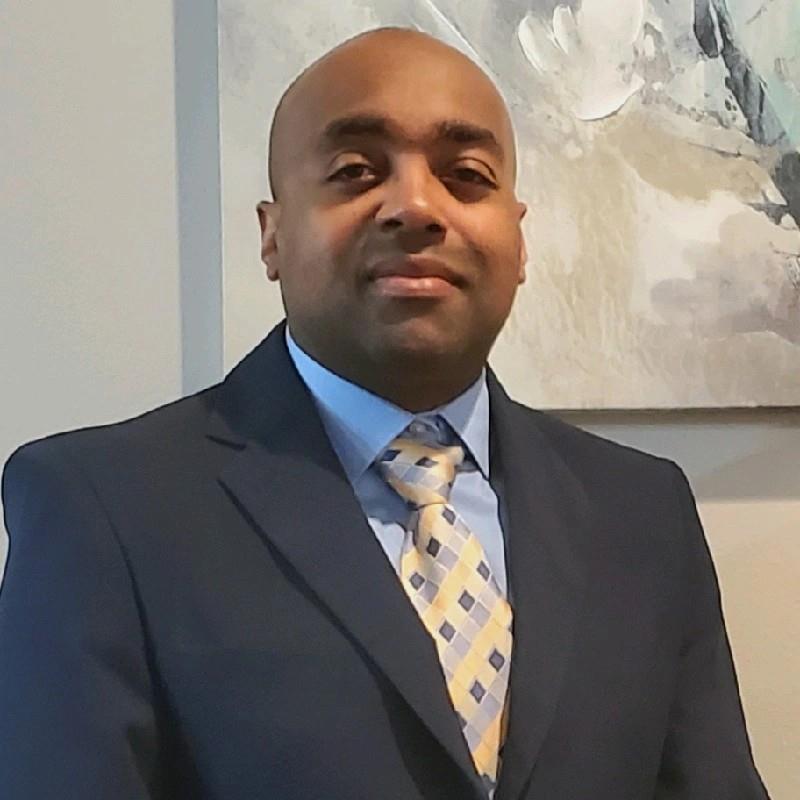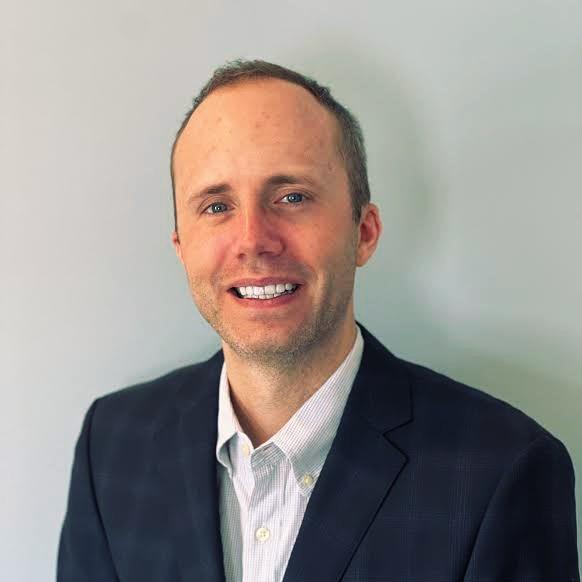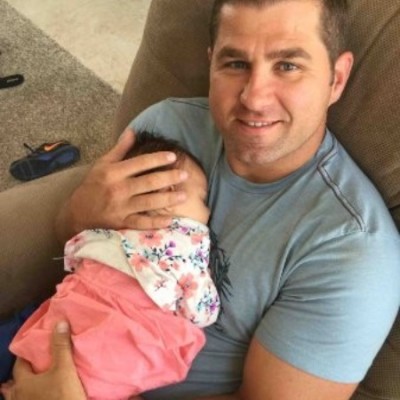Buyers won’t buy because they understand you. Buyers will buy because you understand them. In this episode, Samuel Adeyinka interviews John Crowder who covers how to sell effectively in medical sales. You’ll learn about the importance of building rapport with your clients and how to do so effectively. You’ll also learn about the importance of establishing trust with your clients so that they feel comfortable enough to open up about their concerns and needs. Finally, you’ll learn all about how you can convince your client to move forward with your business—and what kind of things you should be doing in order to make sure that happens! What’s more, all these are just the tip of the iceberg. Tune in now and get medical sales-ready!
—
Watch the episode here
Listen to the podcast here
Selling Effectively In Medical Sales With John Crowder
We have with us another special guest. He goes by the name of John Crowder. John is a sales leader that comes from the healthcare sales space and has been in the industry for many years. He has worked for companies like Roche, Sanofi-Aventis, Gilead Sciences, BI, and even ZOLL. Now, he works for a company. What exactly does his company do? They bring coaching and training solutions to sales reps, and get them to sell effectively to their customers all based on integrity and driving true value to the providers.
I’m not going to spoil it and give anything away. You’re going to have to read the episode. We truly get into the nuggets of what it means to sell effectively. As always, thank you for reading. We do our best to bring you guests that are bringing innovation and different and new ways to make medical sales the amazing industry that it is. I do hope you enjoy this interview.
—
John, how are you doing?
I’m wonderful. How are you doing?
I’m fantastic. There are no complaints. Before we address what you do, what is your company? What exactly do they do as an organization?
The company goes back about 50 years. What we do is help develop people in two main categories, selling skills and leadership skills. We cross a wide array of industries. It could be in the commercial industry, the financial industry, and different organizations as well as healthcare.
One of the reasons why I loved having you on this show is you come from a medical sales background. You’ve worked with some of the best companies and all leadership roles. Let’s dive a little bit deeper. Walk us through what it looks like when a company finds your company and wants to enroll in its services. What exactly is happening? What exactly gets executed?
There’s a variety of things. First of all, we try to live the model that we promote to our colleagues and our clients. That is, “Let’s seek to understand what their challenges are.” We usually have a lot of customer interactions with them, understanding what their needs are. Through a series of meetings, we develop a process or a system that best addressed the sales or leadership training needs of that organization.
When you develop these frameworks for the organization, are you staying with the organization through the execution of it? Is it more of a, “We’re going to give you something to operate from?” How does it typically work?
We’ve got a pretty comprehensive program. We do the initial discovery process and then take them through the implement implementation process. That extends sometimes to multi-year contracts. Our largest and longest-existing customer in the healthcare space has been an advocate and a utilizer of our product for many years.
This is something insightful for all of us. The notion is a company puts energy into its sales training program. Think of any random company like Pfizer or Medtronic. They have a sales training program that they have in-house people work on. Anybody that comes through the company goes through it. Is that not quite the picture? Is it more like companies like that would find a company like yours, and you’re working with that company over a long-term relationship to help them roll out the train that they have been rolling out?
It’s a little bit different. What we offer is probably quite different than traditional medical selling skills. If you go back and look at the skillset that most individuals acquire when they come into the industry, it centers around messaging activity, talking about our products, activity with customers, and how often they receive our message. We typically work with advanced consultative skills, which are different skillsets. A lot of organizations that may have a sales model don’t probably follow the prescription that we deliver or the method that we deliver to them, which is why they contract us.
When do companies realize they need someone like you? What’s typically happening with the organization that says, “John, where are you? We need help. Get over here.”
It’s interesting. It’s a variety of different things, but a lot of it starts with access. Our reps can’t get in front of people. There’s a failure to engage. We can’t close for the next item. We’re having turnover issues. We’re not having people achieve their sales goals. There’s frustration and low employee engagement. There are all these signals. From a management perspective, what happens is that you see managers who begin to believe that they can lead their team from behind their desks.
That’s a huge mistake. We hear that from our clients, “Our reps are not engaging customers at the level that they need to and that they’re capable of. Our sales managers are not out in the field working side by side collaboratively with our sales teams.” They say, “I’m too busy to coach.” That’s their number one responsibility, in our opinion. How can you not give service to what we see as your number one opportunity to impact organizational success?
Your services help managers have better relationships with their teams. I’ll give an example. You have a company. The managers may be trying to lead from behind the desk. They’re not getting into the field much. You come in, do a session or a series of sessions with those managers, and give them a whole new way of looking at things. Now, they go back into the field and show up differently.
What we say is that if you want your sales reps to become consultative sellers, you have to develop consultative leaders. What happens to most managers when they become managers is they’re typically high-performing sales reps. They get into a role where management is telling people what to do. Eventually, they become tired. It’s called management fatigue. They become tired of telling people what to do. They don’t feel like there’s a value exchange here. They say, “The best way I can support you is by making sure that everything from an operational perspective is taken care of.”
There’s a deeper and more meaningful way to engage people with value. What happens is we teach you how you work with your reps in a consultative manner. Therefore, you’re able to bring more value. It improves relationships. The best compliment that a rep can give a manager, in my opinion, is when they call you and say, “I’ve got a big deal. I’ve got an important meeting. I’ve got something significant for our business. I need you there with me.” When your reps start doing that, you know you’ve made the transition to being a great coach.
How long does it typically take from your experience to go into an organization and work with its leaders? They’re doing it the way they’re doing it, and then they finally attain what your model is trying to get them to attain. How long does that transition typically take?
It’s never-ending. I say that with all sincerity. You can’t win the Junior Olympics, go to be an Olympic champion, and not continue to train in that interval. If you look at any dominant sports athlete, they train continually. They’re on their game continually. They all need continual development. In general, we don’t ever give up. You can begin to establish foundational skills in about 2 to 3 months, but it’s an ongoing process. Having taught this for 25-plus years, I still learn little tidbits when I facilitate classes where the participants share ideas or concepts with me that I had never considered before. Even after many years, I’m still learning.
Let’s take it back to medical sales and talk about what you do in the space of medical sales. For people to get a true appreciation for what companies like yours are doing, is to understand the state of sales reps and the other side of what good looks like. Take us to the state of medical sales. What would you say are some of the issues that are glaring and getting in the way of sales reps being more effective and being everything that you believe a sales rep should be? What’s the issue?
It goes back probably 25 or 30 years. I call this a generation of tellers. We have to understand the psychology of people. Most people come into the sales process with the belief system that selling is talking about my product. That is true. You have to be able to talk about your product, especially in our field because it’s so governed by the FDA. It’s litigious. We’re restricted. There’s so much oversight.
You have to be able to speak about your product in a certain way so the outcomes are very serious, but what happens is that when people come into sales and believe that selling is talking about their product, and we give them information, it emboldens their belief system that they want to talk more about their product. We give them disease state knowledge, product knowledge, competitive knowledge, marketing talk points, strategies, features, and benefits. All of this emboldens that individual, “I have to talk about my product. I have to go out and give my message.”
The icing on the cake is we give them activity metrics. We tell them, “This is who you have to go to. This is how many times you have to give the message.” All of a sudden, my belief in sales is, “It’s about me talking and activity.” That doesn’t work well with our customers. 25 or 30 years of us talking to our customers has led to message fatigue. The customers don’t want to hear you talking to them anymore.
It has devalued what we can do as professionals. We’re capable of so much more than delivering a message. It has watered down the talent pool because it said the talent pool is about delivering a message. It’s about giving support and delivering a service. It’s not about changing the way prescribers practice medicine. It works. Features and benefits of selling the messaging campaign generated billions upon billions of dollars for the industry. It works in a me-too population where I’m selling one statin versus another or one ace inhibitor versus another and where we don’t have to bring about change.
[bctt tweet=”The talent pool is about delivering a message. It’s about giving support. It’s about delivering a service.” via=”no”]
What I will tell you is that changing somebody’s prescribing habits and changing the way they practice medicine are two different skillsets. I’m not going to be able to message you to change the way you manage a patient population. I’m going to have to consult with you, understand, and have a deep dialogue about how you bring about change, how is that going to benefit you if you bring about this change, and what it’s going to cost you if you don’t.
That was pretty profound. Say the difference between only changing prescribing habits and influencing behavior.
You have to think about the Law of Large Numbers. Most people come from the industry and the primary care level selling me-too products. They become mentally conditioned, “I can change your prescribing habits by messaging you and by calls, reach, and frequency.”
You would support that it has worked.
If you’re selling a me-too drug, I don’t need to sell you what a statin does. We all know what it does. I need to sell you the features and benefits of my statin versus my competitors, and I need to show you that I care and that I’m nice. It’s rapport-building. If I want to change the way you manage these patients, that’s a different skillset. That’s an advanced skillset. I’m not changing your prescribing habits. I’m changing the way you practice medicine.
What you have to know is this. How do you currently treat them? How do you want to treat them? If you change how you treat them, what are going to be the benefits? If you don’t change how you treat them, what’s it going to cost you, your practice, and your patience? That’s a different skillset. It’s a different discussion. That’s me opening up and being in a position where I feel confident to ask you questions to generally want to understand where you’re coming from.
I want to seek to understand before being understood. It’s the seven habits of highly effective people. It’s a beautiful rule. If I do that, I expose myself. People are afraid to do that because, all of a sudden, I may get in a position where I’m not controlling the conversation by talking at you with a message that I’ve been scripted to give you. I’m a little bit more vulnerable.
There are nerves that people have to overcome to open themselves up when they ask an appropriate question, but with the benefit that you get and the relationships you build, people are going, “You care what I say.” People don’t buy because they understand you. They buy because you understand them. You then are able to become a problem-solver.

If you want to talk about employee engagement, think about this. Here are your script and activity metrics. I want you to go out and give this message. Think about the numbers on this. Let’s say you had 100 customers. The old rule used to be that the customers had to hear the message eight times. 8 times 100 is 800. Let me tell you something. The reps never got to 800. They got to about 350. The customer didn’t get message fatigue. The rep did.
All of a sudden, my engagement with my customers and my engagement with my job go down. Compare that to this. I become a consultant. I understand how to take you through this evolution of discovery. You may not even see it yourself how you can improve, not only how you care for these patients but your practice, your facility, and your staff. I can improve all of this. I take you through that discovery. I’m a problem-solver. I’m no longer a messenger.
I’m no longer a walking and talking commercial. I’m a consultant. I can help you change the way you manage disease states as opposed to trying to message you into that. It’s a different feeling. It gives people a different level of confidence and comfort. Their employee engagement goes up. The manager learns to work with them in that realm as well. You want to talk about collaboration and moving the needle. That’s how you help retain good people too.
Tell me this. We will go to this example that you gave. The rep that was giving the eight was trying to get to the eight messages versus being a consultative seller. What have you seen as the biggest barrier to helping those reps get to the other side and becoming those consultative sellers? What consistently gets in their way that makes it very difficult for them to make that transition that you’ve seen?
It’s their belief system. They’re mentally conditioned that messaging and activity are the benchmarks for success. They’re mentally conditioned around that. They want to go out and execute that time and time again. We have to pull them back. The first thing that we do is help them re-envision what their view of selling is. We start with their mindset. If you look at most consultative companies, they’re going to start with skillsets. We say, “Hang on a second. We can change your skillset, but if your belief system isn’t in the right alignment, you won’t adopt those skills. You won’t execute them.”
The skills have to be aligned with what your view of success and accomplishment looks like. We start with the mindset and then teach the skillset. Over a period of follow-up, we teach them how they apply it. That’s what’s key with us as well. It’s a little bit different. I sat through twenty years of management training. In 99% of them, they take you in there once a quarter.

It could be a variety of topics. It could be hiring skills, conflict management, or situational leadership. There are all kinds of them out there. They’re great. There’s real value in them, but if you’re not in the mode where you’re handling a conflict on your team, how much of that am I going to retain? Almost none of it because there was no application.
We know statistically that in about 48 hours, when you sit through one of those courses, unless you get immediate feedback and coaching, you’re going to forget 75% of what you were taught. We don’t do that. We take them through real-world exercises on the concepts as soon as the classes ended so that they begin to shape and change how they operate on a daily basis as professionals.
Let’s shift gears a little bit and go to your background now. The audience needs to hear where you came from because you’re giving us all this insight. They need to know where you got it all from. Take us back to college. You’re coming out of college. I’m sure you weren’t thinking, “I’m going to be a vice president of a company. That’s my goal.” What was your goal? What was the transition to the first career out of college?
It’s interesting how things tend to come full circle. I always wanted to be a teacher and a coach. That’s my passion. You have to find the right environment to be able to do that. For me, it’s not teaching second graders or high schoolers. There’s another way to become a teacher and a coach. For me, that’s working with adults. I started as a college football coach. That fit my need to want to be a teacher and a coach. I spent six years doing that.
[bctt tweet=”You have to find the right environment to be able to find and pursue your passion.” via=”no”]
I spent a couple of years at Marshall University where I played. I went to the University of Maryland and ended up at the United States Naval Academy, where I was also a commissioned officer in the Navy. I loved it. However, it’s a pretty tough lifestyle. I say this with all sincerity. It’s 100 hours a week for 4 straight months with no days off back in the day. It can be hard on families. I wanted to still continue to coach and teach, but I thought there was a better environment for me to be able to do that. I got into medical sales in 1995.
From coaching into medical sales, how did you discover that? Where did you even learn about medical sales? Who or what turned you onto it?
One of the guys that were my coaches in college is my best friend. We ended up working together for a number of years. His wife was in pharmaceuticals. I knew a little bit about the industry. She helped me get in along with a couple of other people at the academy. It was a great opportunity. I was looking for another career path. My degree is in Exercise Physiology. I have a little bit of a science background. I enjoy that part of what we do in our industry. I thought it was a good fit. I enjoyed the sales process. I enjoyed being competitive and trying to establish myself as a top rep, but I always had the dream of getting into a leadership role where I could lead my team.
You left coaching and became a manager at Roche. After Roche, what happened?
I started as a rep at Roche. It was an awesome company. Along the way, I have such great mentors and leaders. They’re people that you know when you’re working for somebody that gets it. I have so many stories that I share when I teach this course about great leadership, not from my perspective as the teacher but as the student. I started as a rep. I left there and joined a small startup company that ended up growing into Aventis, which got emerged with Sanofi-Aventis. I bounced around the industry until I got into medical device sales years ago.
What was the biggest transition for you along the way? With the examples we use, it sounds like pharmaceutical sales, but you’re applying this across pharmaceutical and medical device sales. What would you say the biggest transition was in the way pharmaceutical sales reps sell compared to the way medical sales reps sell and how your company coaching applies to both? Give us some of the differences so people that come from both industries can see how you see it.
It’s interesting because people feel that the selling skills from one industry to the other are significantly different. In some regards, that’s true. If you’re selling a me-too primary care drug, there’s a different skillset and a different drum beat that you have when you’re working in the cath lab, let’s say. Let me say this. Selling a statin is a statin. This may be controversial, but selling a stent is a stent. You’re not selling what the stent does. We all know what they do. They all may do it a little bit differently. That comes down to messaging.
What I would say is a couple of things. Number one is if you want to make the transition from pharma to medical device, many people have gone back and forth. It can be done. Don’t be intimidated by it. We work with major medical device companies. It’s probably the biggest percentage of our healthcare market. The skillsets are pretty universal. It’s all about, “I believe that I have to use the magic of my words to talk you into using my product.”
We say, “Don’t put that pressure on yourself or your customer. Take it off. Let’s have a dialogue about what we can do to change how you manage your patient population and how we can improve it.” I’m willing to partner with you. I’m willing to collaborate because you’re not talking at me. You’re coming to me to say, “How can we do this together?” You have to retrain people into that skillset.

I like the fact that you said train because I would like to say that providers these days are trained to hear a marketing message. Sometimes when reps try to have a dialogue with them, they want the conversation short, “Give me the marketing message so I can get on with my day.”
That does happen, but it depends on your view of what you are trying to accomplish and what your goal is because if you talk to them, they may hear what you have to say, but it’s also easy for them to discard or discount what you have to say. They’re placating you. They have been conditioned to do that. In our industry, we have been conditioned to give them that message.
If I have something important to talk to you about, I don’t want you to give me 90 seconds at the scrub sink. If it’s going to change how you manage that cardiogenic shock patient that’s coming into your cath lab, don’t you think, “I deserve more than 90 seconds?” Don’t you think that patient does? It’s your perspective of yourself and what you’re trying to accomplish, “Am I goal-oriented?”
I’m not going to let them placate me in mediocracy. What I have to talk to you about is more important, “I want to talk to you about this. When is the right time for us to get down? I want to understand where you’re hoping to take your practice, what your outcomes are, and how you would like to improve this.” All of a sudden, they see you differently versus somebody that’s trying to give me a message. I don’t want them to pigeonhole me in that role.
It’s very true. You work beyond medical sales. You work with all types of companies. Give us the breadth of who you serve.
It’s big. I’m going to share it. I don’t know how many of these companies we’re allowed to share. You can look it up on our website. BASF is a company of ours. We have done work with New York Life, Peoples Bank, and Coventry Health. There are railroads, hospice organizations, and senior living organizations. We have quite a broad reach. We’re in 130 country countries. We have trained over three million people. We’ve got 25,000 certified facilitators that can go out and teach this stuff. We have been around for 50 years. It’s a well-established product.
Your background is in medical sales. I need the audience to know this. You’ve worked at Gilead Sciences, CV Therapeutics, Sanofi-Aventis, BI, and ZOLL. You’ve worked at a lot of different companies. You’ve been in both pharma and med device. You’re working with a company that serves so many different industries in sales and leadership. The common belief is medical sales are different than any other sales.
Medical sales leadership is different than any other leadership because in the medical sales space, you’re dealing with patients’ lives and impacting patient outcomes, but you get a vantage point that a lot of people say they do not have. Would you say that when it comes to medical sales, there are stark differences that can’t be denied? Would you say that there’s more of a common problem that every industry faces when it comes to developing sales and leadership?
In general, it’s universal. The data may be old, but if you look at employee engagement in the United States, it’s about 30%. Thirty percent of employees are engaged in what they do on a daily basis. Imagine how that impacts the productivity and well-being of that individual who doesn’t feel engaged by their job.
[bctt tweet=”30% of employees are engaged in what they do on a daily basis. Imagine how that impacts productivity or the wellbeing of that individual who doesn’t feel engaged in their job.” via=”no”]
Seventy percent are not engaged.
The number one factor that impacts employee engagement is leadership. It doesn’t matter whether it’s our industry or other industries. It’s universal. We are known as being a consultative sales company. We teach advanced selling skills, but we try to position all of this. All of it is worthless. It’s all a waste of time and money if leadership doesn’t buy into it and if leadership doesn’t practice the skills, treat people with empathy, understanding, and a desire to understand where they want to go and take their career, and help them get that way. If I can model that as a leader, I can get my team to model that when they interact. I don’t know if I answered your question, but it spans all industries and what we do. We think there’s a real need for both sales and leadership development in every space that we work in.
You did answer my question and pretty much said that it’s universal. It’s a common problem in every industry. The models that you have are able to serve all these different industries, including medical sales.
It’s so easy. I look at LinkedIn all the time. It says, “This is what you should be doing.” It’s easy to talk about the what. It’s more important for leaders to talk, “How are we going to get there?” If I tell you how we’re going to get there, that’s being a manager. As a coach, I want to understand, “How do you think we should get there? How would you do it? This is the value that I can bring in helping us get there.” The thing about leading is this. Why is it important?
Let’s say you and I have a discussion on not only what to do but how we’re going to accomplish that. We then understand why it is important this way. Why is it important to our clients? Why is it important to the patients? Why is it important to the hospital? Why is it important to us as professionals? All of those things are a part of being great leaders. That’s a big part of what we teach.
How do you make the dream work? You’ve had such a long career in medical sales as a leader. What’s your setup? Do you have kids? Do you have a family? Are you a guy that has all the time in the world and can make all these things happen? How do you make it all work?
I am so blessed in that world. My wife is awesome. We have been together for many years. We have two wonderful children. I’m blessed in that department. Like a lot of people, I’ve certainly made my mistakes, but I learned from them. I want to use this as an opportunity. If I know others, I’m learning. If I know myself, I’m wise. Part of what we teach is this self-awareness piece. Years ago, I went through this discovery process to understand who I am as a person and what’s important to me. That led me to my wife, which brings it back to family, which is what I want to tell you. When I know that and have that goal of clarity and confidence, it helps me make better decisions.
[bctt tweet=”Self-awareness is understanding who you are as a person and what’s important to you. It leads to goal clarity and that confidence to make better decisions. ” via=”no”]
I love it. What grounds you? What’s the philosophy that you operate by that when the day is getting incredibly difficult or you’re going through some trying times brings you back and keeps you grounded to move forward and keep doing what you have to do?
I’ve been blessed with a belief system that my success and my joy come through helping others. I’m hardwired as a teacher and a coach. That’s what grounds me. There’s this battle in the world between light and darkness. Light overcomes darkness when it comes from you, and you can share that with others. I believe in that. I believe that the more we commit ourselves to help others be successful as people have done for me out of the generosity and kindness of their hearts, and if we extend that toward other people, then we have a chance of enjoying that ourselves. It comes back to us manyfold in a variety of ways.
Is there anything else you would like to share with the audience? Our audience is people that want to get into the industry, people that are in the industry, and people that are leading the way. Are there any last messages you would like to share with our audience members?
My message is this. The industry is going to try to pigeonhole you, for lack of a better word. They’re going to give you a certain set of skills and put you in a certain category. Resist that. Invest in yourself. Believe in yourself. Commit to expanding your ability to be an executive salesperson with advanced selling skills or an executive-level leader. Believe me, the skillsets between an entry-level person and an executive-level person are different. The same thing applies to leadership. The CEO has a different set of skills than the frontline leader. Invest in yourself and believe in yourself that you can do more. Make a plan that gives you a sense of your ability to move forward and then go after it. Don’t be pigeonholed. Don’t be restricted.
There’s one question I’ll ask you, and then we will jump to the lightning round here. We have talked a lot about how people need to get after it. People need to believe that the training doesn’t end. If you’re a salesman, sales training should continue. If you’re a leader, leadership training should continue. Where can people get this assistance?
We would love for people to consider us. We have been around for a long time. We have a great clientele. There’s a reason for it. We’re a proven product. We’re continuing to grow. It’s interesting because whether it’s industry, sales, or the buzz of the day, it comes down to connecting with humans. If I feel good about what I do, I will execute my leadership skills and my selling skills. If I don’t feel good, then I’m not going to do it. Regardless of what the buzz of the day is, it comes down to, “Do people feel good about the interaction? Can they execute it?” If not, it’s a waste of time and effort. That’s what we feel we have demonstrated over the years.
John, this has been wonderful. We’re going to jump to the lightning round. I’m going to ask you a series of four questions. You have less than ten seconds to answer them. Are you ready?
I’m ready.
What’s the best book you’ve read in the last few months?
It’s by Doris Kearns. It’s a good one. It’s Team of Rivals.
What is that about?
It’s about Abraham Lincoln. It is an unbelievably good book. It’s a hard read because it’s written in Old English style, but it’s a great book.
What’s the best movie or show you’ve seen in the last few months?
We are watching a show called Reboot. It’s a sitcom. My wife and I try to find something to watch together. That’s what we’re watching.
That’s good old family time. What’s the best meal you’ve had in the last few months?
There’s a restaurant in Ocean City, Maryland called Liquid Assets. It’s in a strip mall. It’s a liquor store. You wouldn’t think of it. It converted into a restaurant. There’s unbelievably good food.
Next time I’m in Maryland, I’m going to have to try it. What’s the best experience you’ve had in the last few months?
It’s probably watching my kids grow and make the transition to middle school and high school. When you see them make that leap, you’re nervous but you want to see them make that transition and be successful. That’s what we have done. There have been a lot of trying times in one regard, but it’s a lot of fun to see them make that transition and go to the next level.
You’re going to have to give me some tips then because I have a kid. He entered middle school. Pretty soon, he will be making that transition. I’ll be looking forward to calling on you to give me some guidance.
There’s no manual for being adults. As we know, all these kids are wired differently and have different experiences and personalities. You have to roll with it, but it is a lot of fun to see them grow to a new level. The advanced skills that they have now are amazing. Everything is computer-based. We didn’t even have computers when I was growing up. They’re so far ahead of us. It’s not even funny.
Who would have thought that platforms like YouTube would be teaching our kids good and valuable things that they’re taking to entirely new levels that we didn’t have any opportunity to when we were their age? You’re right about that. John, it was wonderful spending this time with you. We’re going to be looking out for more that’s coming from your company and the good work you’re doing. Thank you for being on the show.
Samuel, thank you so much. It has been a pleasure. Have a wonderful day.
—
That was John Crowder. It’s always nice to revisit the fundamentals of selling effectively, especially when it’s based on integrity and you’re bringing true value. Revisit those principles. Keep them at the forefront of your mind. That’s why I enjoyed this episode. You might be in the field and thinking to yourselves, “Some of these things, I’m doing. Some of the things, I’m not doing or I could be doing better. I know there’s more out there that I should be doing, and I want to know what that is.”
If you’re someone that wants to improve your performance, then visit EvolveYourSuccess.com, select Improve Sales Performance, and take a look at our sales training program. Let’s get you to where you need to be and get you effective, whether that be a promotion, a rotation, a different business unit within your company, or a new company altogether. Let us help you get there. If you’re thinking to yourself, “I want to get a position where I can utilize some of these tools,” then let us help you do it.
Go to EvolveYourSuccess.com, select Attain A Medical Sales Role, fill out our short application, and schedule a time with us. Let’s talk about the Medical Sales Career Builder program. That program can change your entire life by putting you in a medical sales position where you’re making the right money that you deserve, you’re helping patients in ways that you didn’t even think were possible, and you’re on a career track to truly live a full life and a full career. Keep on reading because we’re going to continue to bring you innovative guests that are making waves in the industry and doing things to add so much value.
Important Links
- John Crowder
- BASF
- New York Life
- Peoples Bank
- Coventry Health
- Team of Rivals
- Improve Sales Performance
- Attain A Medical Sales Role
- https://www.LinkedIn.com/company/Integrity-Solutions-llc/
- Integrity Solutions’ Will Milano interview with Samuel
About John Crowder
 John brings over 25 years of sales and leadership experience in the healthcare industry to the Integrity Solutions team. Prior to joining us, he worked for and led sales teams in medical device and pharma ranging from start-ups to Fortune 500 companies, spending a significant part of his career working in key account management, sales and leadership development, and marketing. Prior to his career in the medical space, John spent six years as a Division-1 football coach including a three year stint at the United States Naval Academy where he also served as a Commissioned Officer. John’s decades of experience and passion for coaching allow him to understand and address the unique needs and challenges of those in the sales and leadership professions. He lives in Annapolis, MD with his wife and two daughters.
John brings over 25 years of sales and leadership experience in the healthcare industry to the Integrity Solutions team. Prior to joining us, he worked for and led sales teams in medical device and pharma ranging from start-ups to Fortune 500 companies, spending a significant part of his career working in key account management, sales and leadership development, and marketing. Prior to his career in the medical space, John spent six years as a Division-1 football coach including a three year stint at the United States Naval Academy where he also served as a Commissioned Officer. John’s decades of experience and passion for coaching allow him to understand and address the unique needs and challenges of those in the sales and leadership professions. He lives in Annapolis, MD with his wife and two daughters.
Love the show? Subscribe, rate, review, and share!
Join the Medical Sales Podcast Community today:



























































































